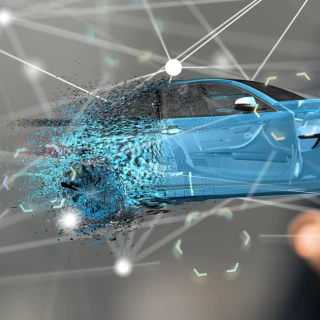Software
competency
In another revolutionary development, software competency is increasingly becoming one of the industry's most important differentiators for various areas (ADAS/active security, connectivity and infotainment). Subsequently, since cars are more and more being integrated in the connected world, the manufacturers will have to participate in the new mobility ecosystems.
The historic operators of the automobile industry can’t predict its future with certainty. However, they can take strategic measures from now on in order to stay ahead of its evolution. The existing players should try to anticipate the change that's coming and implement a three-part strategic approach.
- Be prepared for uncertainty: in order to succeed in 2030, the automotive players will need to switch to an ongoing process of anticipating the new market trends. delaware, for instance, intends to collaborate with players in the automotive industry in order to help them identify the applications, solutions, and tools best suited for their business model.
- Take advantage of partnerships: in order to succeed, the car manufacturers, suppliers, and service providers must unite or participate in ecosystems. Go for innovation in order to differentiate yourself from your competitors! Partnerships with OEM players can result in interesting co-innovation programs. If they are efficiently managed, they will shorten the investment cycles and foster the exchanges. Powerful PLM tools will allow companies to become more agile while complying with the requirements of partners.
- Lead a transformational change: since innovation and product value are ever more being defined by software, OEMs must align their skills and processes in order to take on new challenges. These can vary from offering value to the consumers to cybersecurity, data confidentiality, and ongoing product updates. The automotive industry is characterized by increasingly integrated flows, which requires compliance with the standards and strict requirements for all players in the supply chain. delaware can carry out the most innovative projects integrating concepts such as artificial intelligence, smart robots, RFID, IoT, ... All these elements are thoroughly revolutionizing the automotive industry.
The correct management of the flows in the automotive sector (JIT, JIS, advanced stores, packaging...) and of the business processes as well as the mastery of the tools and standards (EDI, RF, RFID, labeling, traceability...) are some of the key factors that will allow the different players to interact and become more efficient and competitive.
Innovation is key if companies want to meet the major challenges of the new technologies, such as electric or autonomous cars and connectivity.
Dedicated to the automotive industry, FAST-Automotive is a preconfigured solution focusing on Tier 1 and 2 equipment manufacturers, car manufacturers, and dealers who wish to quickly implement a solution meeting the sector’s requirements.

/automotive-banner-3200x500-(1).webp?mode=autocrop&w=320&h=240&attachmenthistoryguid=98a4a3fe-169e-4884-91bc-1447aba072bc&v=&focusX=2322&focusY=314&c=a3ba73541d80e848471c695c7b43e83667eb6d47f43b3ba486465c34eefc11e3)
/PSS-720x360-(1).webp?mode=autocrop&w=320&h=240&attachmenthistoryguid=dd119f98-2637-437e-aa2b-00ebc7915034&v=&focusX=168&focusY=143&c=446458654bede0baa32c9cf45848c6760ea800f85c5ebb1116b9c0022be0c43a)